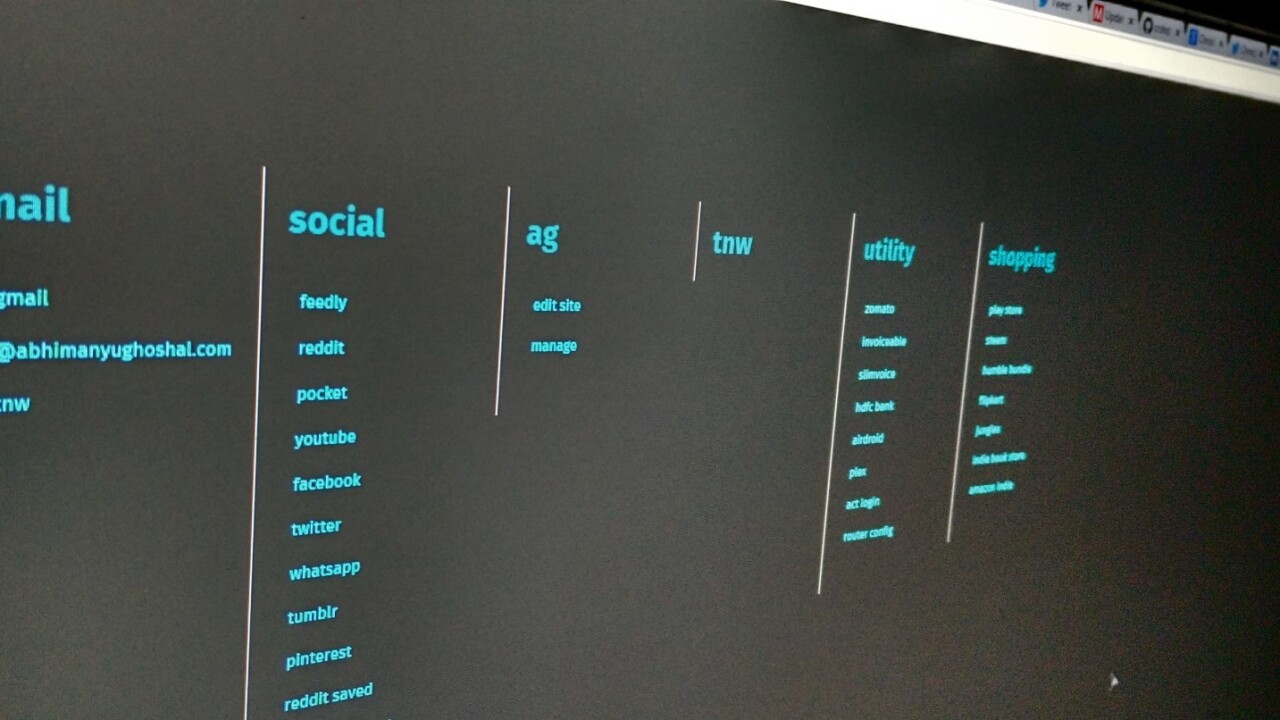
There are several browser add-ons to add frequently visited sites and other features to your blank New Tab page, but I prefer using a custom start page hosted on my domain instead.
It’s a simple page that just contains a bunch of links in columns, along with a clock and a Google search box. I run mine as a pinned tab in Chrome so it doesn’t take up much room and is always easy to reach with Ctrl/Cmd+1.

Plus, my start page resides on my personal domain. That makes it easy to load on any browser, on any device, with an easy-to-remember URL.
Finally, running a start page on my domain as my browser’s home page lets me know instantly if my internet connection and domain name are working — if it loads, everything’s good to go.
There are a bunch of free self-hosted start pages you can use. I like this one by developer Christian Brassat, which is lightweight and easy to configure, even if you can’t code to save your life.
Here’s how to set up your own start page in five minutes:
- Download the start page package from Christian Brassat’s GitHub repo.
- Open up index.html in any text editor and customize the links in the page body. You’ll need a URL and a link name in this format: https://thenextweb.com || The Next Web

- Save your changes.
- Edit the style.css file to adjust your background and text colors, or leave it be.
- Launch an FTP client or your web host’s dashboard and upload the entire start page folder, into the topmost folder of your site storage. The name of this folder determines the URL of your start page.
So, for example, if your site is hosted at johndoe.com and the folder is called ‘start’, your new start page will be available at johndoe.com/start.
You can follow the instructions on Chris’ GitHub repo to adjust settings like search engines and opening links in new windows. And of course, you can change or remove links any time you need to by editing the index.html file hosted on your server.
What’s your start page like? Let us know in the comments!
Read next: This Chrome extension turns your browser windows into manageable workspaces
Get the TNW newsletter
Get the most important tech news in your inbox each week.





